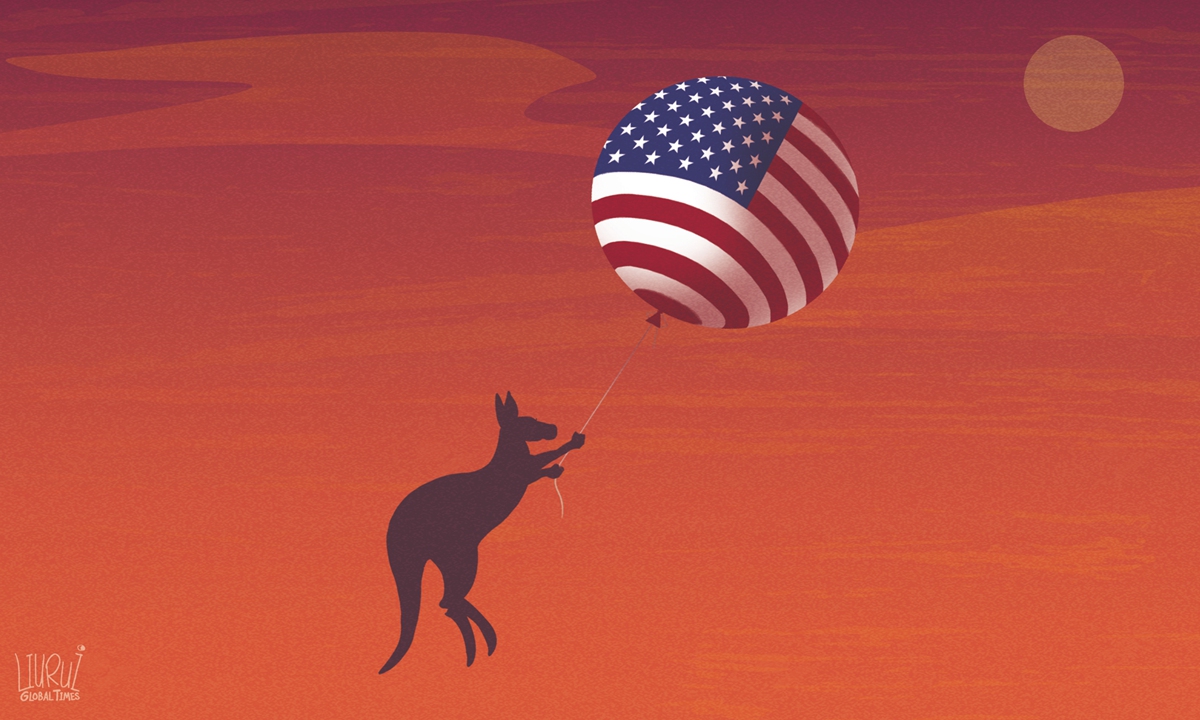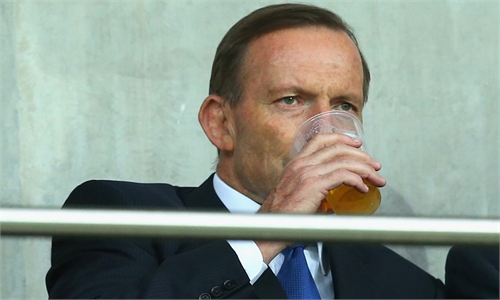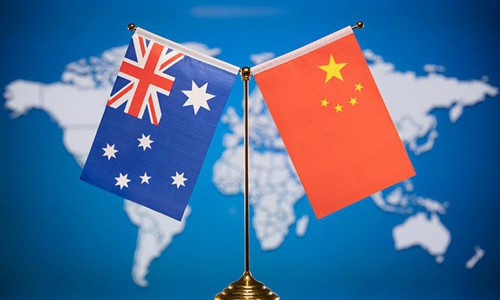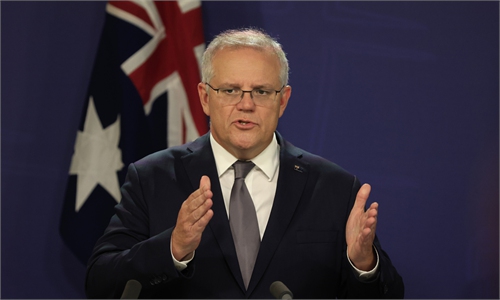
Illustration: Liu Rui/GT
Media outlets and think tanks in today's Australia have been prevalently misled with a Cold War mentality in viewing the world, in particular with regard to China. Misconceptions and misjudgments have resulted from such confrontational mind-sets, preventing the Australian public from comprehensively and accurately understanding China. However, there are still some clear-minded visionary people from Down Under, who, in spite of the predominant outdated ideological prejudices, are able to look at China with sensibility and objectivity.Tony Walker, a vice-chancellor's fellow at Australia's La Trobe University, recently published an article at one of Australia's leading media portals, The Conversation, with the title, "China's global diplomatic approach is shifting, and Australia would do well to pay attention to it." In the article, Walker made the keen observation that China "has been engaging in some creative diplomacy to lessen risks of geopolitical isolation."
He suggested that "it would be a mistake for countries like Australia to assume China will continue to alienate a wider international community if it believes its actions are proving inimical to its own interests." He went on further to call on Australia's "policymaking circles, dominated by a national security establishment wedded to seeing China as a threat," to weigh the recent "creative diplomacy" of China.
For over four years, the Morrison administration has positioned China in a strategically adversarial frame, based on its misjudgments of China and China's development. Australia has been deliberately turning a blind eye to China's significant role to ensure peace and prosperity regionally and globally, while pumping out the "China threat theory" in coordination with Washington's anti-China campaign. Australia's foreign policy has been featured with a series of errors and failures. It is not an exaggeration to say that Morrison's China policy has been a complete fiasco. Canberra has been headstrong going down an anti-China path, serving Washington's agenda to maintain the US' hegemony while hurting Australia's own national interests.
Acting as the US' deputy sheriff in the Asia-Pacific region, the Morrison administration has been senselessly provoking China and harming China's interest. The constructive partnership between the two countries built and nurtured over almost 50 years is being callously sabotaged.
The Morrison administration is now stuck in an embarrassing and awkward stalemate. Characteristically for his immature and irrational diplomacy, with regard to the current anti-China frenzy, there is simply no exit plan. To continue to pursue the current antagonistic tactics would only further jeopardize Australia's own interest, but Canberra simply does not know how to back out its leaking boat with surety.
The bilateral relationship is now in the most critical juncture, and Australia's political interest and economic well-being could suffer even more severe losses.
As a matter of fact, further deterioration of the China-Australia ties could cast a more ominous shadow over next year's general parliament election. Both the incumbent Liberal-National Coalition Party and the opposition Labor Party have to take the China factor into their electoral considerations.
The year 2022 coincides with the 50th anniversary of the establishment of the formal diplomatic relations between China and Australia. Anniversaries are often occasions for celebration, but given the present deadlock it is more necessary for us to reflect on the difficulties and seek out possible solutions. It took the two countries five decades to assiduously build the bilateral ties into the mutually beneficial comprehensive strategic partnership, but it is apparently much easier to break than to make. Canberra needs to come back to its senses and regain the political wisdom of its previous political leaders, and make judicious decisions to remedy and rectify the missteps which have brought cataclysmic damages to the mutual interest of the two countries.
Walker's article reveals a fact that there are rationality and sagacity among scholars of Australia's think tanks. There are also eminent political figures such as the former prime minister Paul Keating, businesspeople, and academics who have been continuously making appeals to the government in Canberra to steer Australia's relationship with China out of the geopolitical and geo-economic maelstrom.
However, to date, such whistle-blowing voices have either been deliberately ignored or viciously attacked. No government of political wisdom and maturity would forsake its long-term interest by shooting the messenger. To be a country of true independence worth of international respect entails strategic resilience and a sense of responsibility.
Singaporean Prime Minister Lee Hsien Loong has admonished Australian leaders to learn to live with China. In June, Lee advised Canberra that "this is a big world, in which there are different countries and work with others who are not completely like-minded, but with whom you have many issues where your interests do align and where your mutual cooperation is necessary." On such a basis, China and Singapore have been working well together despite various differences. Even China and Japan have been able to find pragmatic paths to cooperate.
There are no fundamental differences or historical dispute between Australia and China. It makes no sense for Canberra to pick fights with Beijing, self-deceivingly regarding China as a strategic adversary. During the past four or five years, Australia has been acting as the most ferocious and dedicated pioneer in Washington's anti-China crusade.
However, there is one brutal truth that Canberra has found hard to swallow: Australia's so-called like-minded allies have wasted no time to take over the lion's share in the China market left with the exit of the Australian products after Canberra has recklessly ruined its business ties with China.
Recently, some positive signs have emerged in China-US relations. Washington has been adjusting its attitude and policies toward Beijing. It would be very embarrassing if Australia would be stuck in the anti-China cul-de-sac while the rest of the world are adapting themselves to new changes and rise to new opportunities.
The author is president of the Chinese Association of Australian Studies, and professor and director of Australian Studies Centre, East China Normal University. opinion@globaltimes.com.cn



